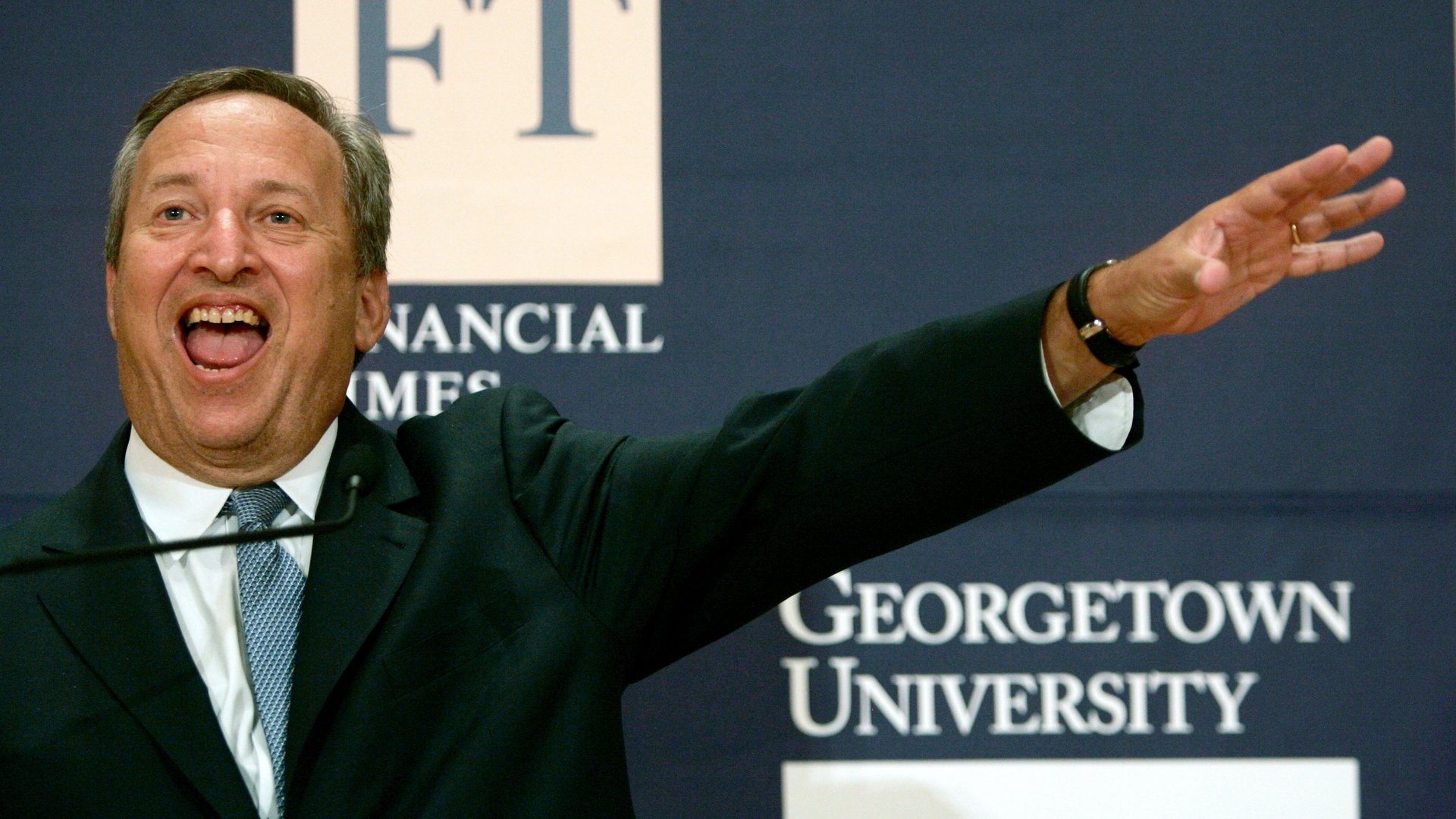How Larry Summers could win over his critics on the way to becoming Fed Chair
Larry Summers’ on-going campaign to be the next chairman of the Federal Reserve has led to some bad blood in the financial world, with critics making the case he’s not suited for the job and even Wall Street apparently rejecting the economics éminence grise.


Larry Summers’ on-going campaign to be the next chairman of the Federal Reserve has led to some bad blood in the financial world, with critics making the case he’s not suited for the job and even Wall Street apparently rejecting the economics éminence grise.
It appears that the people who matter to the nomination decision—president Barack Obama and his circle of advisers, mostly former Summers colleagues—favor the Harvard professor and former Treasury secretary. But nomination is one thing; confirmation is another. And there’s one way Summers could regain some of his popularity with the chattering classes and the lawmakers who will vote to confirm him: Talk about what he’ll do as Fed chair.
That’s the part of the strategy that brought him into the Obama administration in the first place. Back in the heady days of 2008, when Obama had just trounced Hillary Clinton in the Democratic primary, there was an open question about whether the former Treasury secretary (still in recovery mode after resigning Harvard’s presidency in 2006) would get a job if the Democrats won the presidency.
When the economy really started falling apart, Jason Furman, a Clinton administration protege who had also just joined Obama’s campaign (and is now a top White House economics adviser) put Summers on the phone for regular briefings with candidate Obama. Those conversations helped build the inside relationships that led him to become Obama’s chief economic adviser and are now driving Summers’ potential Fed nomination.
But in 2008, Summers also waged an outside campaign for public support, using his column in the Financial Times to lay out a fairly specific economic policy agenda: More capital for banks, more stimulus from government, more protection for homeowners. Economist (and Summers partisan) Brad DeLong collects some of the greatest hits here.
Today, Summers is mostly silent, and when he talks about monetary policy, he does the best he can to be as opaque as possible. His most conclusive statement on monetary policy is 22 years old. The popular debate over Summers basically hinges on whether or not you like him personally.
He might do better if the public debate were more about his ideas. And right now there’s an opportunity. Stocks are sliding after more evidence emerged that the Fed will slow, or “taper,” its $85-billion-a-month bond purchase program next month. Such a move will likely have the support of Summers’ rival for the post, Fed vice-chair Janet Yellen. Many of Summers’ critics, meanwhile, fear tapering is coming too soon. Maybe it’s time for Summers himself to tell us what he thinks.